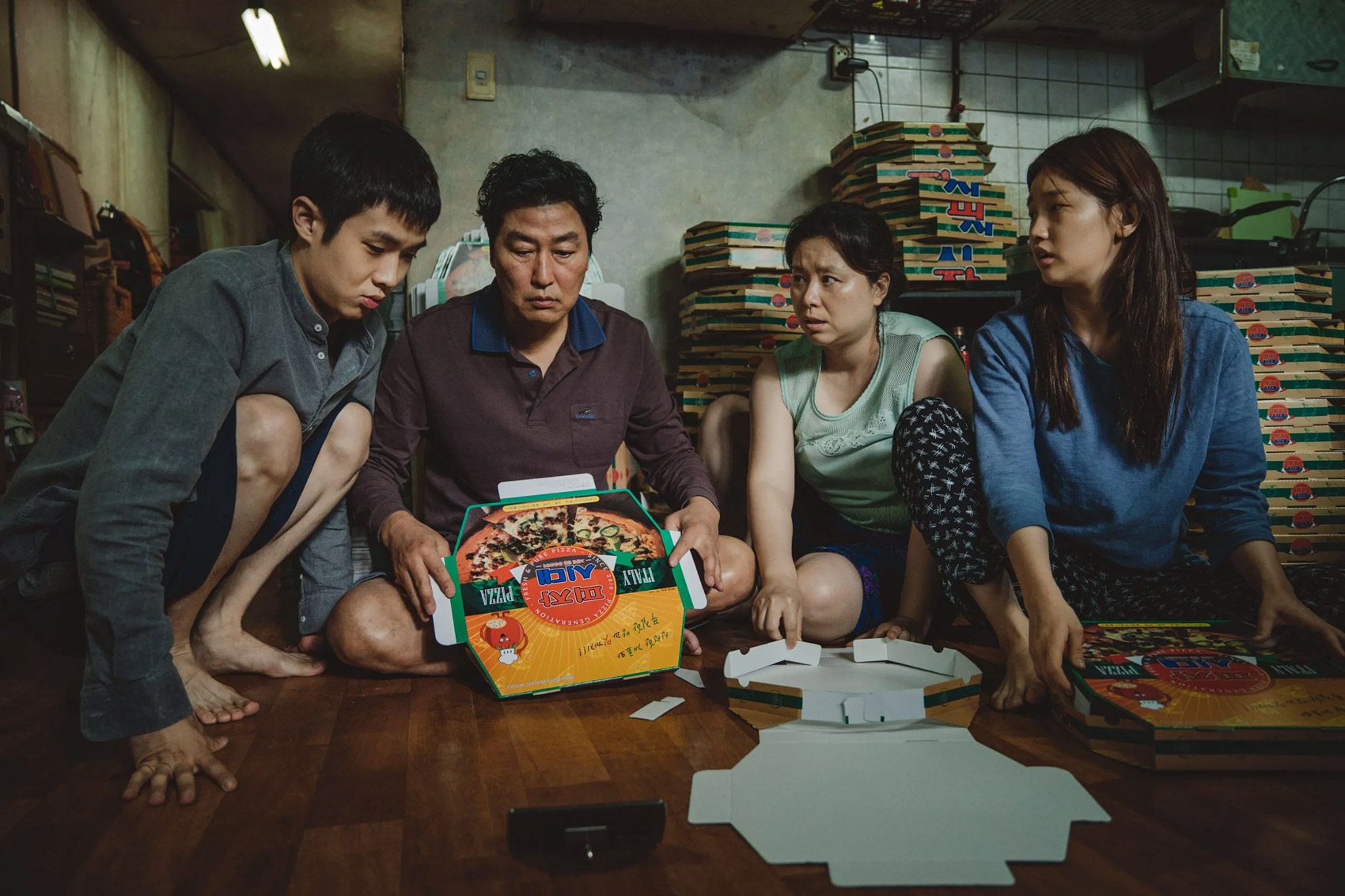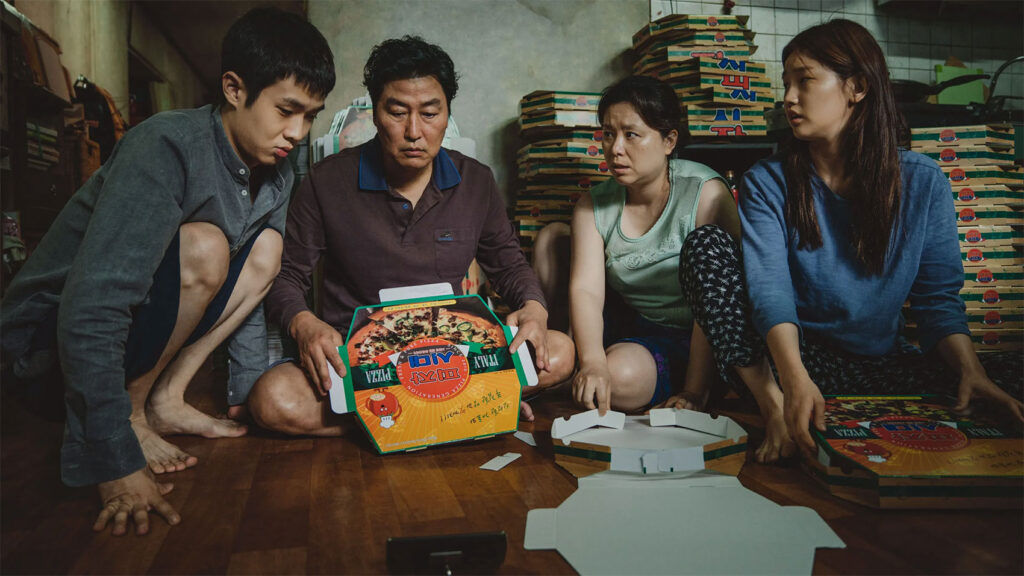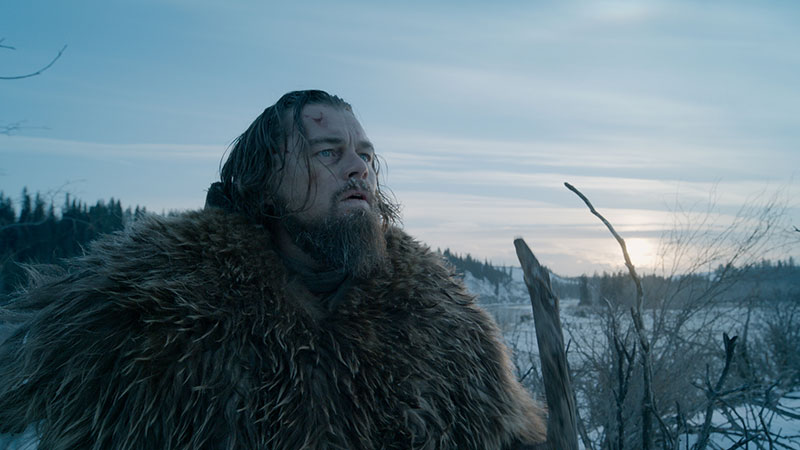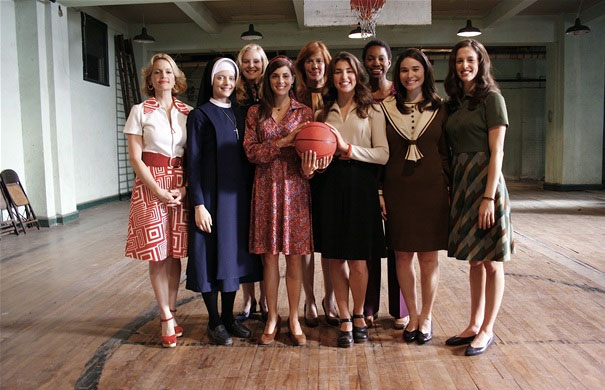Bong Joon Ho’s ‘Parasite’ (2019) is an unsettling masterpiece. This South Korean drama, an intriguing blend of comedy, horror, and social satire, is a manically ingenious and engaging film that leaves a deep, lasting impact on its audience.
‘Parasite’ follows the life of the poverty-stricken Kim family – all living in a basement-level semi-basement apartment – who engage in part-time jobs and swindling others to make ends meet. When the eldest son lands an opportunity to tutor the daughter of the wealthy Park family, the Kims craft a series of elaborate schemes to infiltrate this mansion of opportunity.
This film is a crafty, unpredictable story of social inequality, ambition, and the precariousness of human nature. It seamlessly straddles and brings together different genres. Just as one is comfortable laughing at the brilliantly humorous scenes, the film descends into chilling horror. It is an extraordinary, genre-howling hybrid of a film that keeps the audience gripping the edge of their seats, dreading what happens next in the narrative.
Bong Joon Ho’s direction and Han Jin-won’s screenplay remarkable; they masterfully unpack the societal divide once again after their first collaboration in ‘Snowpiercer’. They testify to the parasite-like nature of both poverty and wealth – how the desperate cling to the affluent for survival and how the rich exploit the poor. The evocative image of the semi-basement, precariously balanced between the street and the sewer, encapsulates this truth.
The performances of the ensemble cast are phenomenal and lend credibility to the narrative. Particularly noteworthy are Song Kang-ho as the father and Choi Woo-shik as the son, who deliver breathtaking performances. The former embodies the bitter desperation of a man trapped in societal constructs, while the latter exudes a convincing sense of youthful ambition and cunning.
Visually, the film is a pure joy, with a remarkable contrast between the cluttered, dingy world of the Kims and the pristine elegance of the Parks’ mansion. Cinematographer Kyung-pyo Hong amplifies this disparity through an excellent display of lighting and color, enhancing the effect of the narrative.
The mansion, for instance, isn’t just an emblem of opulence but a symbol of seclusion from the chaotic wholesale realities of the outside world, an emblem of the hidden, debasing humanity. In almost each scene, Bong ingeniously deploys visual cues that tell you so much about the space and socioeconomic dynamic. Hence, the film is not only a narrative genius but also a textbook in detailed production design and mise-en-scene.
Despite being rich in metaphor and allegory, ‘Parasite’ avoids didacticism. The film never preaches or presents simplistic solutions to societal issues. Instead, it reflects society’s complexities and conflicts in a nuanced way. This is more of an exploration of inequality and class conflict than a judgment or solution, offering a compassionate understanding of both sides of the divide. This balance makes the movie an engaging watch instead of a preachy lecture on societal issues.
The film’s ending is shockingly unpredictable and powerful, taking the chaos experienced by the Kim family to incredible heights. It is the kind of twist that makes the hair on the back of your neck stand on end, an ending that prompts hushed dread in the cinema amidst stunned silence.
‘Parasite’ is a stunning cinematic achievement. It is fused with an all-encompassing sense of dread and excitement, of horror and humor, of tragedy and truth. It is profoundly unsettling precisely because it exposes a reality that is disturbingly familiar. In every sense, it justifies the buzz that surrounded its release and the awards recognizing it as one of 2019’s best films, including the Palme d’Or at Cannes and four Academy Awards, including Best Picture.
In conclusion, ‘Parasite’ is nothing short of a cinematic marvel- an incisive social commentary wrapped in the garb of a genre-defying thriller. It’s a turbulent ride that firmly establishes Bong Joon Ho’s enigmatic storytelling style while offering a stinging critique of societal disparities. A must-watch film for cinema lovers worldwide.




